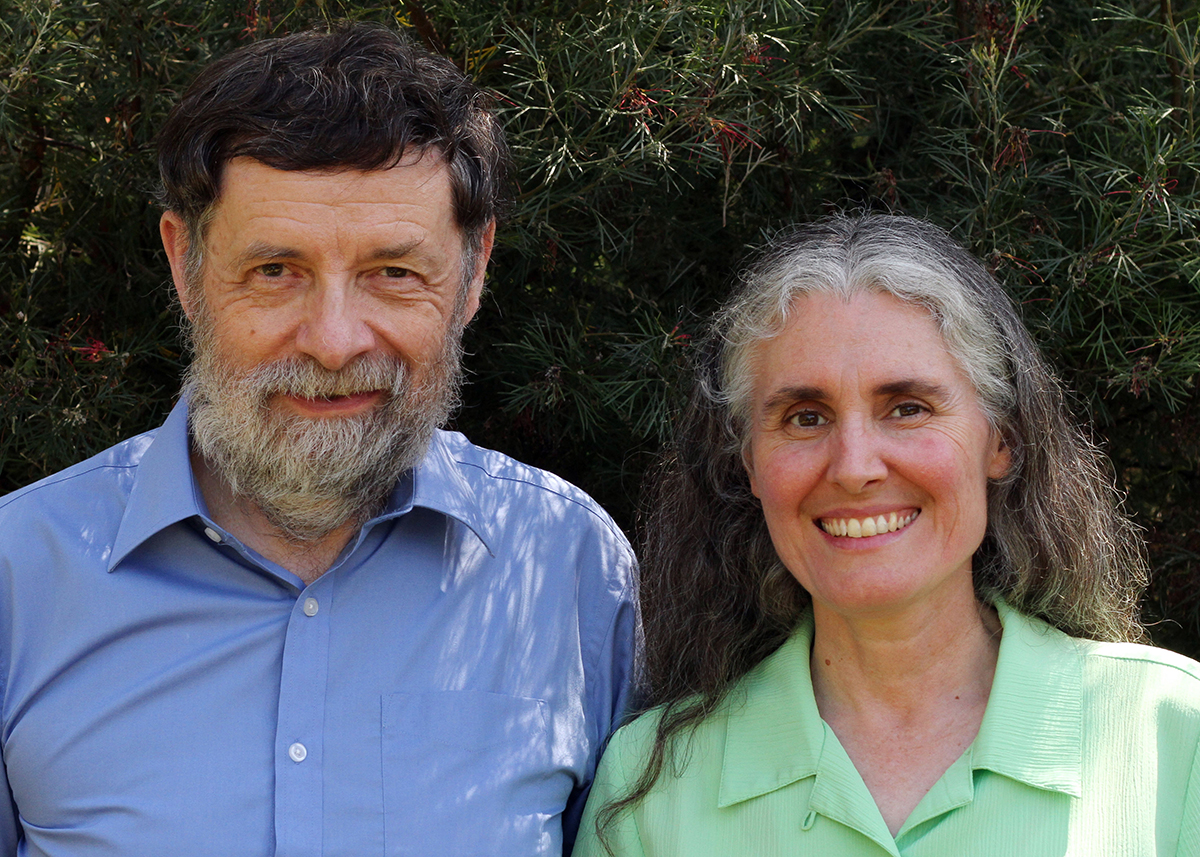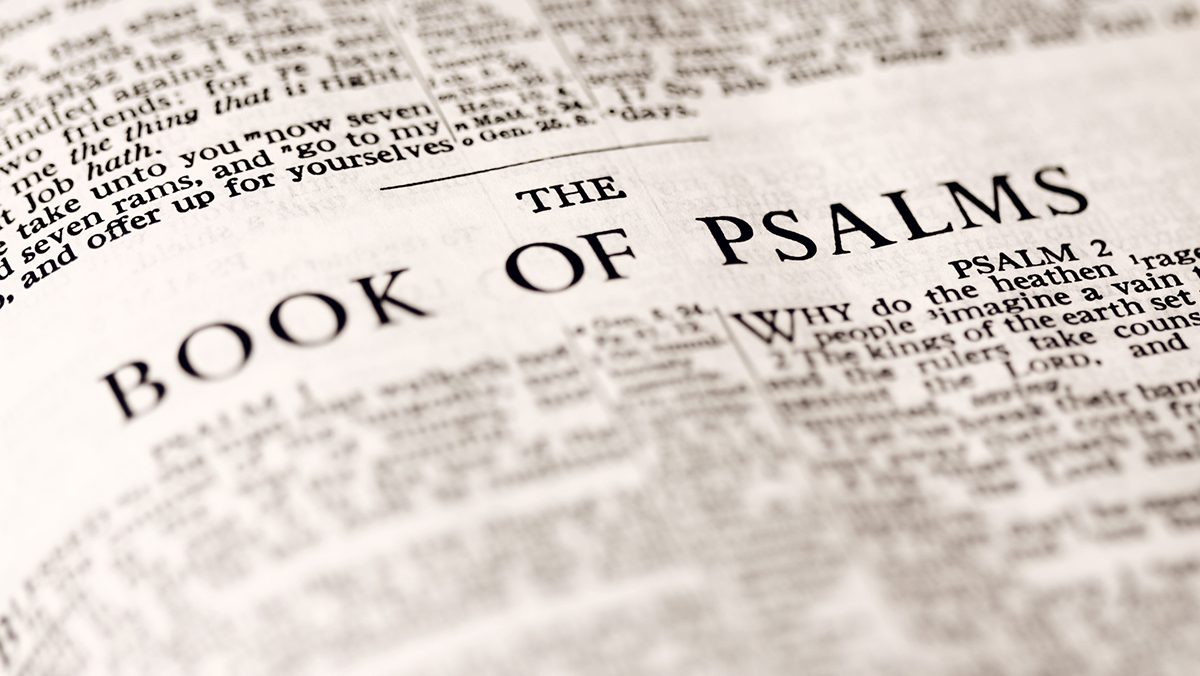
by Evan and Marie Blackmore
Synopsis: As we sing, read, and pray from Psalm 2, we celebrate God’s triumph over His adversaries.
Psalm 2 describes a crisis—the worst crisis in the history of the world. It begins by explaining how it happened. People from all nations rebelled “against the LORD and against His Anointed,” seeking to overthrow God’s rule:
Why are the nations in an uproar And the peoples devising a vain thing? The kings of the earth take their stand And the rulers take counsel together Against the LORD and against His Anointed, saying, “Let us tear their fetters apart and cast away their cords from us!” (Ps. 2:1-3).
The LORD didn’t cause the crisis. He is a God of peace (Phil. 4:9; Heb. 13:20), and His message is a message of peace—peace with Him (Rom. 5:1), and peace with one another (Eph. 2:14-18). Yet humanity rejected the way of peace (Isa. 59:8) and turned against Him.
Nevertheless, no amount of international unrest on earth poses any threat to God. He doesn’t even feel challenged by it. From His exalted perspective in the heavens (Isa. 40:22-24), the combined opposition of all the nations is merely laughable:
He who sits in the heavens laughs, the Lord scoffs at them (Ps. 2:4).
The LORD has chosen and installed His King (Ps. 2:6)—namely, His Son (Ps. 2:7). This King has power to rule even the most remote nations, shattering all their opposition as an iron rod shatters a clay pot. God the Father tells the King:
Ask of Me, and I will surely give the nations as Your inheritance, And the very ends of the earth as Your possession. You shall break them with a rod of iron, You shall shatter them like earthenware (Ps. 2:8-9).
Therefore, the world’s leaders should “worship the Lord with reverence” and “do homage to the Son.” It would be foolish (i.e., lacking “discernment”) to do anything else:
Now therefore, O kings, show discernment; Take warning, O judges of the earth. Worship the LORD with reverence And rejoice with trembling. Do homage to the Son, that He not become angry, and you perish in the way, For His wrath may soon be kindled. How blessed are all who take refuge in Him! (Ps. 2:10-12).
Under the new covenant, God has appointed us to sing Psalm 2 “to one another” and “to the Lord” (Eph. 5:19) because it is both a means of “teaching and admonishing one another” and a prayer addressed “with thankfulness in your hearts to God” (Col. 3:16). Besides singing from Psalm 2, we can also speak from Psalm 2 for the same two purposes: for teaching and admonishing one another (as did the apostles [Acts 13:32-33]), and for prayer to God (as did the apostles [Acts 4:24-30]).
The New Testament Scriptures reveal that Psalm 2 foretold the time when “Herod and Pontius Pilate, along with the Gentiles and the peoples of Israel,” “were gathered together against... Jesus,” whom the Father had anointed (Acts 4:27).
But the unrest described in the psalm didn’t start when Christ was on earth, and it didn’t finish when Christ died. People have been uniting against the LORD ever since Adam and Eve (Gen. 3:6-8), and they will continue uniting against Him until the world ends (2 Tim. 3:1-5; Rev. 20:7-10). Therefore, when we today sing and teach and pray from Psalm 2, we are not merely looking back at something that happened in the past. Rather, we are celebrating a past victory—the supreme victory—in a conflict that is continuing around us.
When the apostles used Psalm 2 in prayer, uttering the psalm’s declaration, “Why did the Gentiles rage... against the Lord and against His Christ?” they acknowledged that the Lord and His Christ are supreme and that all human opposition to Them is futile (Acts 4:25-26). Thus, the apostles were doing the very thing that the psalm instructs the world’s leaders to do: they were worshiping God with reverence and doing homage to His Son (Ps. 2:11-12).
We today can do the same. When we sing Psalm 2, or when we quote from it in our prayers, we also are worshiping the Lord, acknowledging that He is supreme, and doing homage to His Son.
After uttering the words of Psalm 2, the apostles made the psalm the foundation for their petitions to God. When “Herod and Pontius Pilate, along with the Gentiles and the peoples of Israel,” gathered together against Jesus, they were not doing anything unanticipated or surprising; they were doing only what the Lord had foreseen and foretold in that psalm (Acts 4:27-28). Therefore, God’s people could appeal to Him to triumph over all human opposition, just as the psalm had promised (Acts 4:29-30).
We today can do that, too. Having prayed from Psalm 2 (either in song or in speech), we can submit our own request that, just as the Lord prevailed over all human opposition when Jesus was on earth, so He will prevail over all human opposition today. Let His will be done on earth, as it always is in heaven (Matt. 6:10)! We know that this prayer is in accordance with His will, so we can be certain that it will be heard (1 John 5:14).
The apostles lived in very dark days, when the Son of God was widely mocked and rejected (1 Cor. 1:23-24), and His servants were “hated by all nations” (Matt. 24:9; John 15:18-21). Yet they were not discouraged. Repeatedly they quoted from Psalm 2 to show that God the Father had raised up Jesus (Acts 13:33) and glorified Him (Heb. 5:5). The book of Revelation proclaimed that He had been given power “to rule all the nations with a rod of iron,” exactly as Psalm 2 prophesied (Rev. 12:5; 19:15). True, “the great dragon... the serpent of old who is called the devil and Satan” (Rev. 12:9) was causing all the more trouble on earth as a result. However, that was no reason to despair—quite the contrary: the old dragon was striving so hard precisely because he knew he had “only a short time” (Rev. 12:12).
We today can draw precisely the same encouragement from the same psalm. Do we see the devil making great efforts to cause trouble on this beleaguered earth? If so, we can draw encouragement from it—because that is how the devil acts when his plight is desperate. He knows that his time is short (Rev. 12:12)!
Whenever we sing and read Psalm 2, we are reminding each other, just as the apostles did, that God the Father has raised Jesus, glorified Him, installed Him as King, and given Him power over all the nations. Even if the vast majority of the earth’s inhabitants united to reject Him (Ps. 2:1-2), His rule could never be overturned and would totally shatter all opposition (Ps. 2:8-9). To “take refuge in Him” is a great privilege and a great blessing (Ps. 2:12)!
No earthly government abides for long. Only one ruler will endure forever, and His kingdom alone will never end (Isa. 9:6-7; Luke 1:33). He was anointed to be King because He “loved righteousness and hated wickedness” (Ps. 45:7). The King of kings (Rev. 19:16) who is over every earthly authority (Eph. 1:21-22) will always do what is just and right (Isa. 11:4; John 5:30). 



